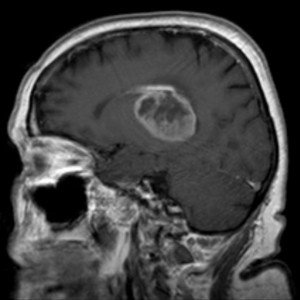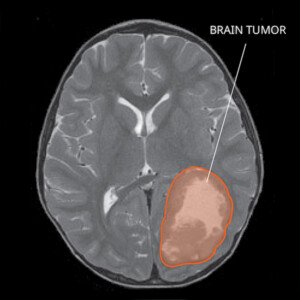
“Depending on the tumors, some blood tests can be used to detect a brain tumor,” says neurosurgeon Charles Park, MD.
“But most of the cases, we find the brain tumor and then do the blood test to see what kind of tumor it is,” says Dr. Park, Director of The Minimally Invasive Brain and Spine Center at Mercy Medical Center in Baltimore.
“For example, if someone has a pituitary tumor, we will do the blood test to see if that tumor is active and producing a certain kind of hormone.
“If it produces prolactin, then we can use medicine to shrink the tumor without surgery.”
How close are researchers to developing a blood test that detects the presence of a brain tumor?
Microvesicles are cell particles that are shed by cancer cells and end up in the bloodstream. They are small enough to cross the blood-brain barrier.
If these can be picked up by a blood test, they potentially can diagnose a brain tumor.
The most common primary brain tumor is a glioblastoma multiforme. By the time this is diagnosed, a patient will usually be dead within 15 months.
The only way currently to diagnose and also monitor a GBM is via imaging tests and biopsies. This is anything but efficacious.
But a simple blood test to do these tasks would change medicine.
Enter Nanotechnology
This groundbreaking technology can be used to magnetically (nuclear magnetic resonance) label the microvesicles.
Researchers are now able to, using a handheld nuclear magnetic resonance instrument, reliably detect microvesicles from tumors in blood samples.
The blood samples with the reliable detection came from both mice and humans with the GMB brain tumor.
The report, published in Nature Medicine (2012), says that this blood test for the brain tumor can be done in a doctor’s office.
So why isn’t this a standard test in doctors’ offices? Well, like any research, this technology must go through a series of phases before it becomes commercialized
Another Possible Blood Test for Detecting a Brain Tumor

In another study, “nearly all forms of cancer were identified,” says cancer researcher Jonas Nilsson in the report, “which proves that blood-based biopsies have an immense potential to improve early detection.”
The study that he’s referring to, which had a 96% detection accuracy rate, comes from Umeå University in Sweden and was published in Cancer Cell (2015).
The test was done on 228 people with cancer. That was just the detection of a cancer.
As for the origin of the malignancy, there was a 71 percent success, and this origin pertained to the lung, colon, breast, pancreas, liver, rectum, and the brain.



























